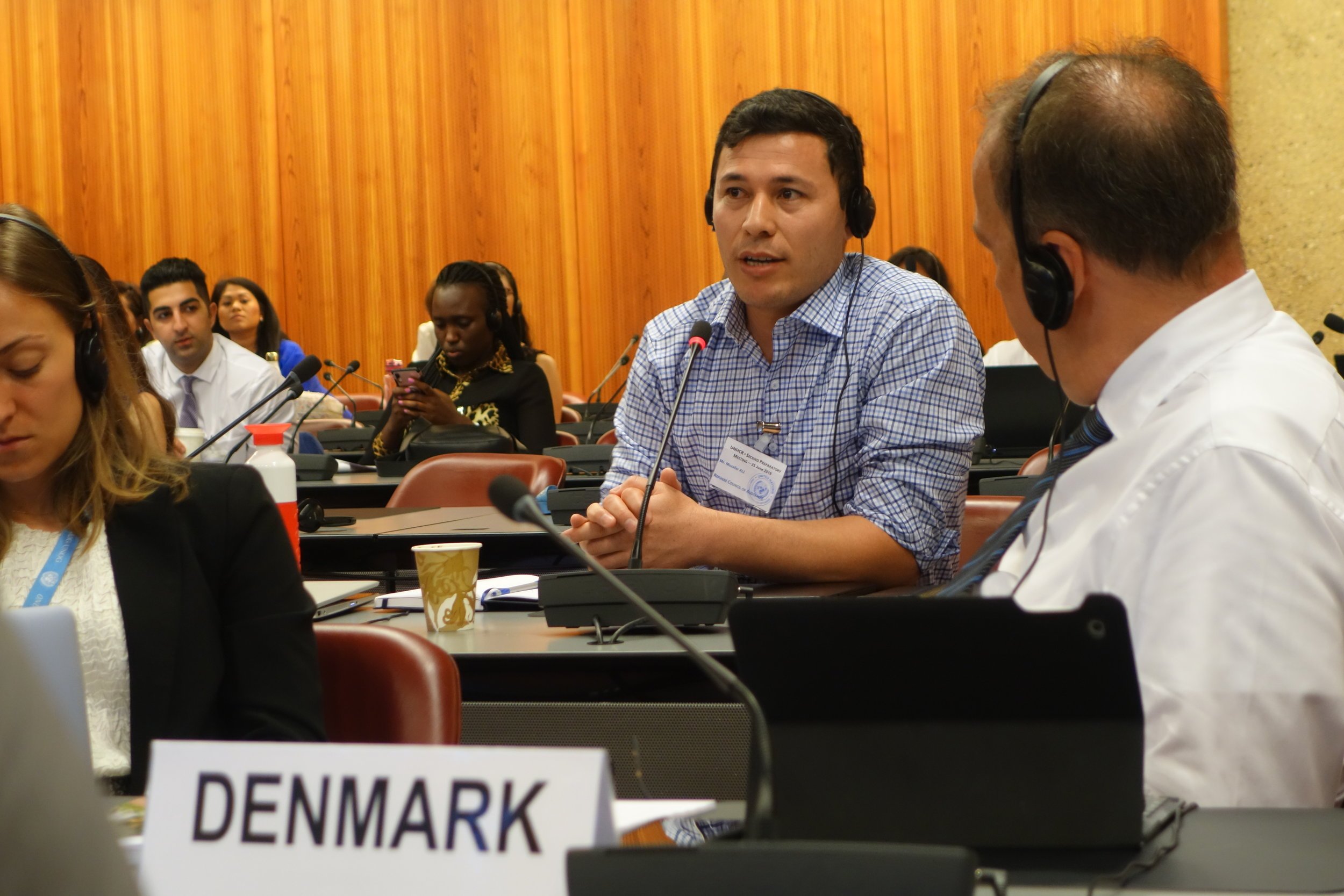Raising the voice of refugees in Geneva
I am writing this reflection on my way back home, flying over a thin layer of cottony clouds, leaving Geneva and its very fresh memories behind.
Looking back to March 2019, when I applied for John Gibson Community Leadership Grant, I knew that the grant would be highly competitive. My continuous work with refugee education and community work in Indonesia and advocacy in Australia gave me the courage to apply anyhow. The call confirming my selection was overwhelmingly pleasant. As my debut visit to Geneva, I received tremendous support from Refugee Council of Australia (RCOA), from the visa application process to advice on catching buses in Geneva, and coordination meetings to shape up our topics to discuss during the consultations. The coordination process was impressively led by RCOA which helped me to understand the significance of this global event. In short, the pre-Geneva process was a great opportunity to meet some key organisations and persons actively involved in refugee advocacy in Australia, and to better grasp the pressing refugee issues that the participants wanted to raise during the consultation.
I am grateful to Paul Power for being patient with me to comprehend the unfolding events in Geneva. His knowledge about refugee issues was hugely helpful for me to enter in any discussion; no wonder I shadowed him most of the time! He was kind to introduce me to a broad network of advocates, UN and NGO staff members. His introduction of my work to his contacts provided me the pitch to engage in discussions.
I found the UNHCR NGO Consultations as the biggest stage for advocacy, showcasing good practices, learning from other organisations’ approaches, UNHCR priorities on concerning issues, such as education, protection and humanitarian assistance for refugees. I was particularly amazed to learn about new approaches, such as music concerts for refugees organised by South American NGOs.
As a former refugee and co-founder of Cisarua Refugee Learning Centre in Indonesia, I grasped the opportunity to raise some important issues with UNHCR such as:
· Establishing better and effective access mechanisms for refugees in UNHCR offices in South East Asia, particularly Indonesia. I echoed refugees’ concerns that UNHCR offices and personnel do not have good communication with them, and they usually do not listen to refugees’ concerns.
· Forming partnerships with refugees to address some of the challenges, particularly education. Focusing on refugees being part of the solution, in an overwhelming global refugee crisis, I raised the “bottom-to-top” idea with UNHCR Asia Bureau, the Global Refugee Forum team, ATCR sessions and at the UNHCR NGO Consultations.
The responses in regard to my questions from UNHCR were immensely interesting. Responses regarding refugees-led educational initiatives were slightly contradictory from different UNHCR officials. While one UNHCR officer felt refugees should not establish educational centres but should somehow be included in Indonesia’s overcrowded schools, another official saw initiatives such as CRLC as a solution to education problems for refugees.
Apart from sharing ideas, raising concerns and getting to know other organisations; I also got the opportunity to assist Arash Bordbar with his session on resettlement by providing him some data, first-hand information about resettled refugees and their experience in the middle of their journey.
My honest conviction about UNHCR NGO Consultation is that the forum is overwhelmingly a “top-to-bottom” approach, and hugely influenced by the donor countries’ efforts to manage refugees. The stakeholders mostly talk about funds, resources and the problem, which in fact is gigantic. However, UNHCR and NGOs working with refugees overlook the solutions within refugees and refugee communities. Therefore, George Okoth-Obbo (UNHCR’s Assistant High Commissioner for Operations) was the only high ranked official who talked about “refugee agency” after my question regarding refugee participation.
Now I believe that refugee advocates should talk about refugee participation on the grounds for addressing education, humanitarian and psycho-social support. I also believe that top-to-bottom approach can only be successful if UNHCR runs a parallel bottom-to-top approach simultaneously. For that purpose, I am interested to advocate on this issue in the next consultations and events. My experience with UNHCR-NGO Consultations has given me new energy and scope to work even harder as an advocate to proliferate the idea that refugees can be a part of the solution and not just labelled as a burden or problem. For this, I am already looking forward to participate in the Global Refugee Forum and next year’s Consultations and other platforms, because I think we need to be ready for a long marathon till refugees are considered as a key partner to address this global crisis.

